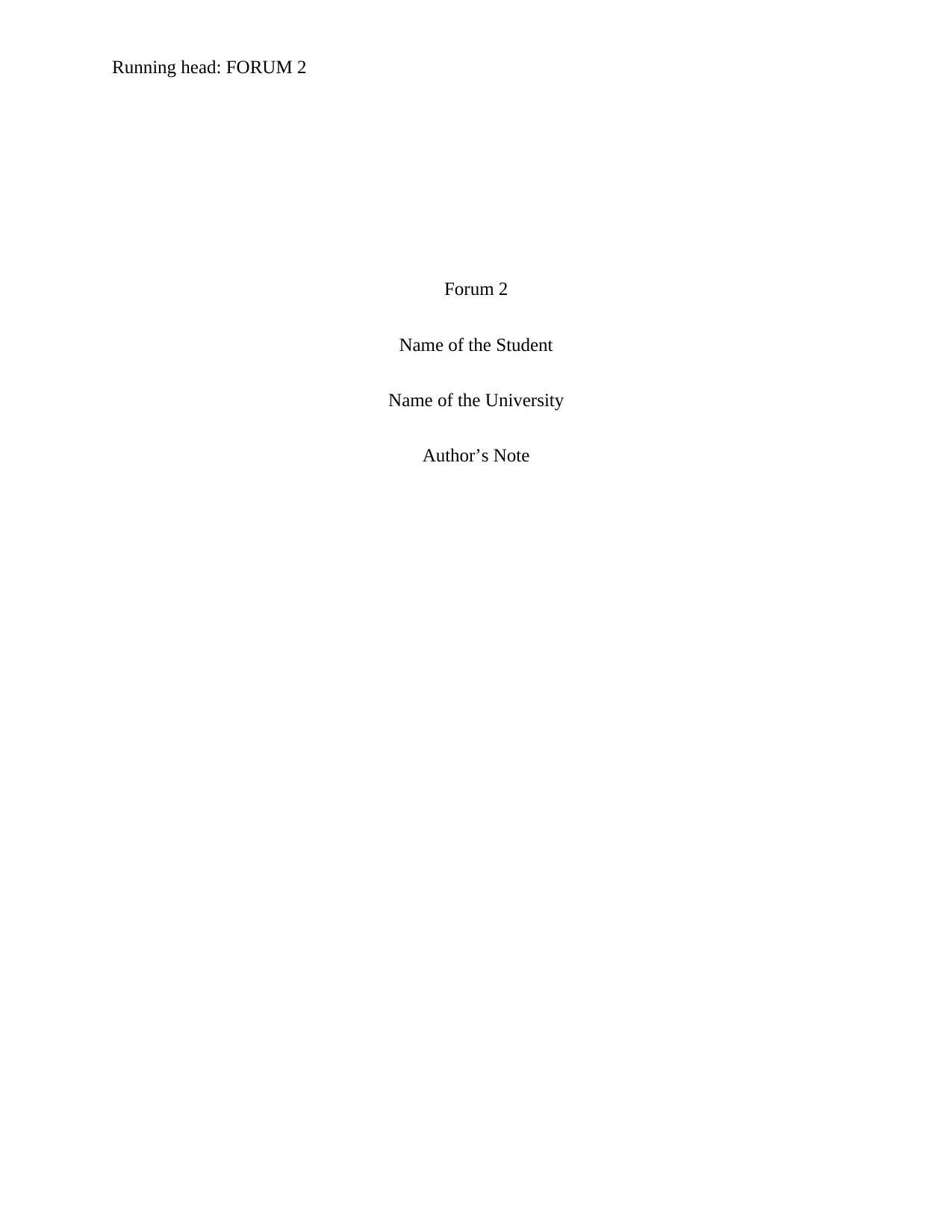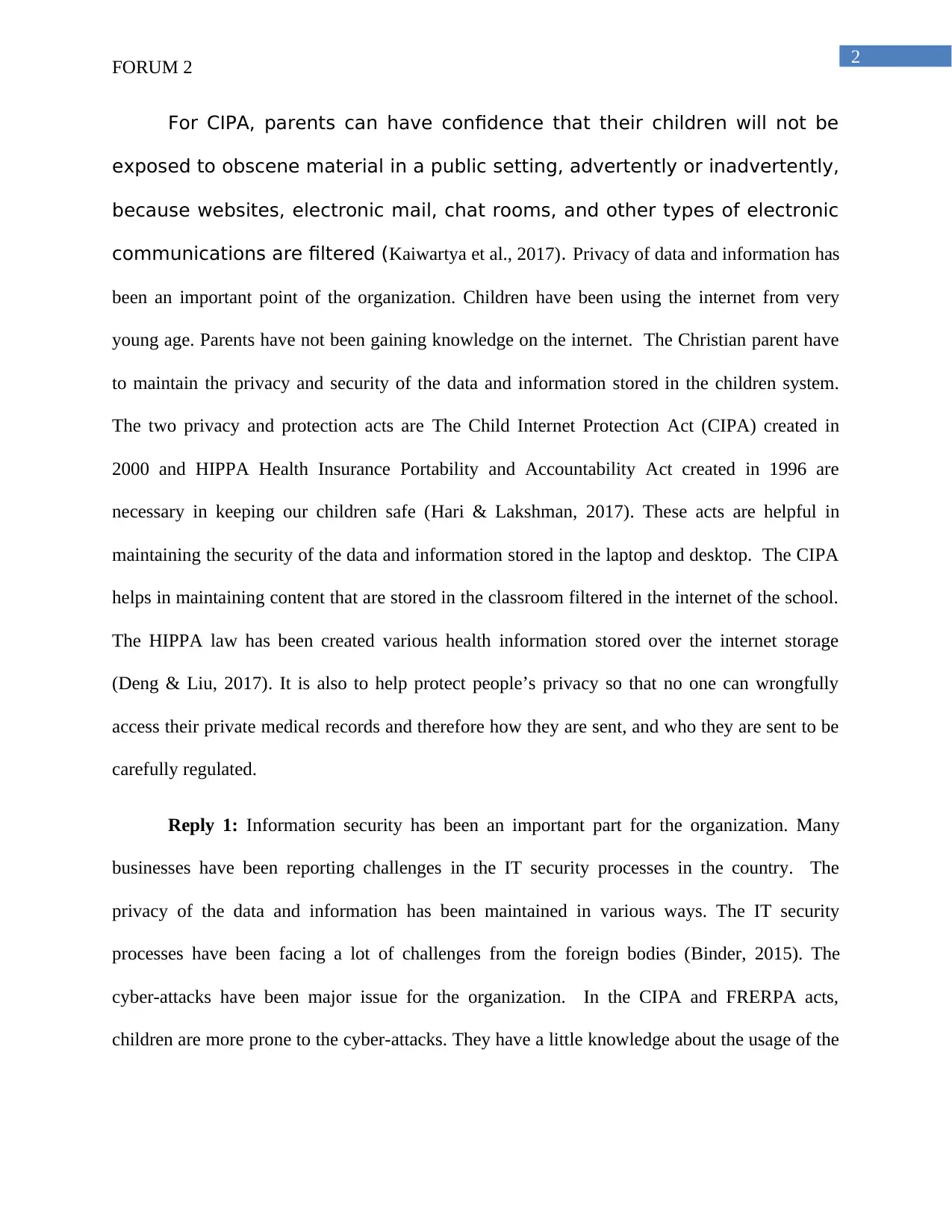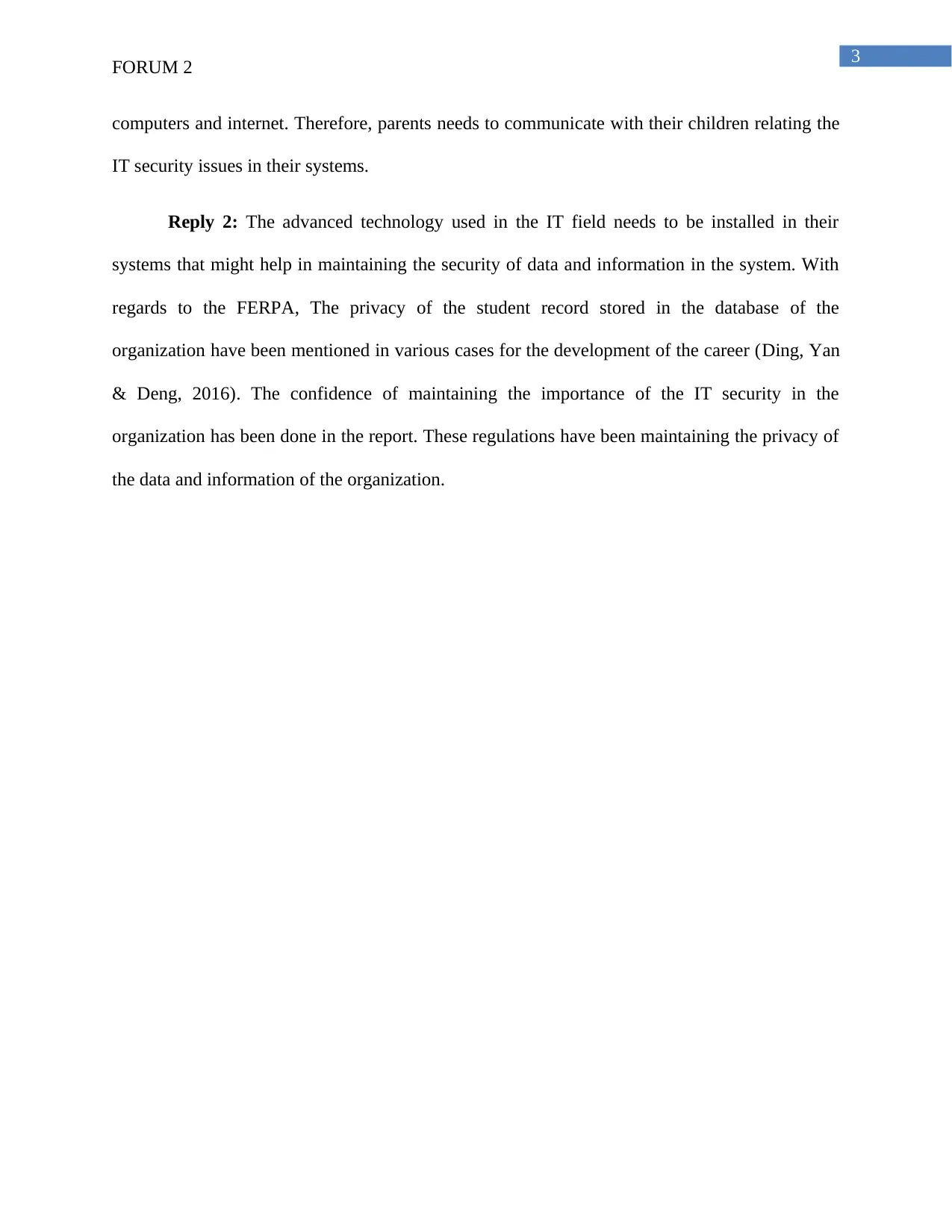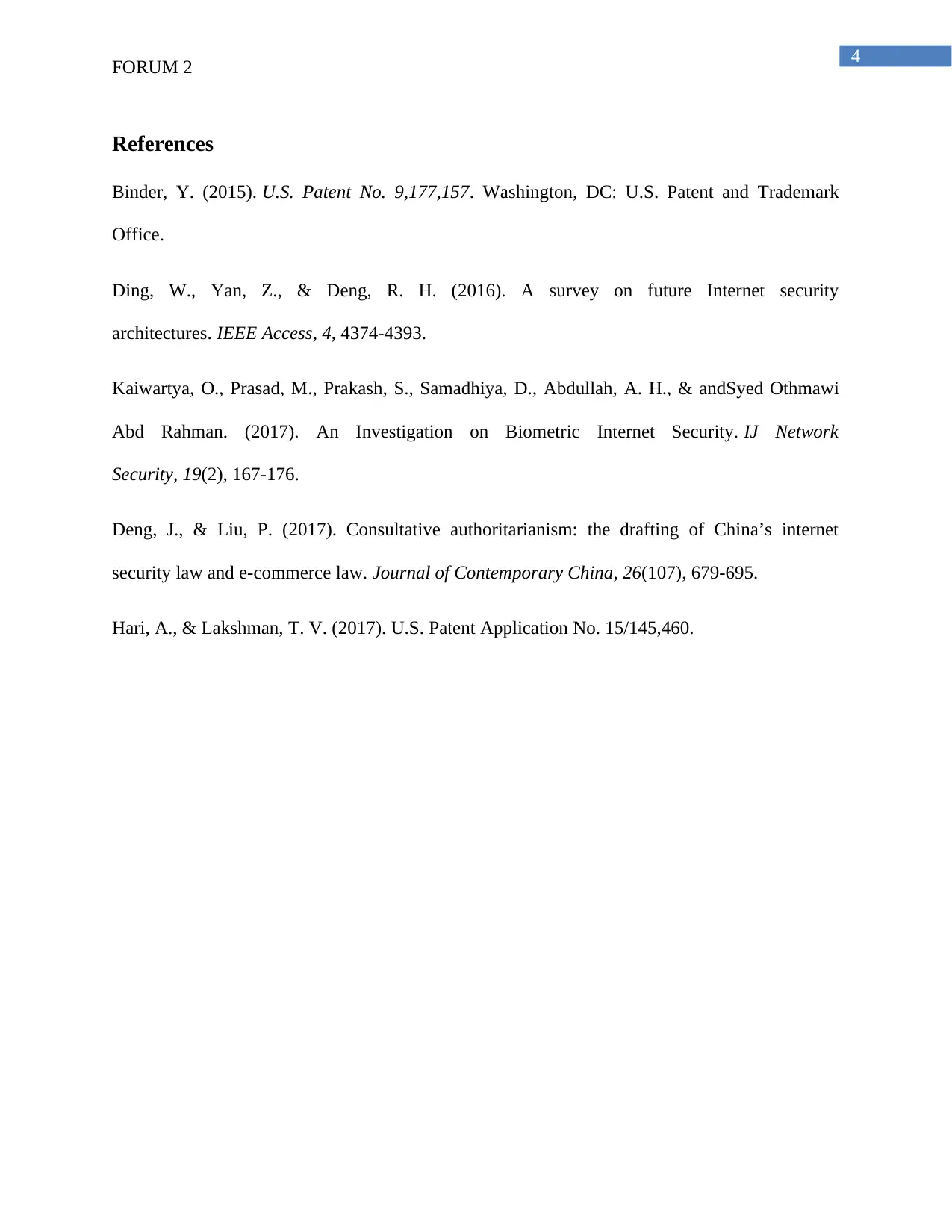Discussing the Role of Christian Parents in Privacy & Protection Acts
VerifiedAdded on 2023/06/11
|4
|676
|146
Discussion Board Post
AI Summary
This discussion board post examines the intersection of Christian parenting with privacy and protection acts, specifically focusing on The Child Internet Protection Act (CIPA) and the Health Insurance Portability and Accountability Act (HIPPA). It highlights the importance of parents being informed about internet safety and data privacy to protect their children from online threats. The discussion also includes replies from classmates, emphasizing the need for IT security awareness and the role of advanced technology in safeguarding data. Furthermore, the importance of maintaining the privacy of student records under FERPA is mentioned, reinforcing the overall theme of data protection and responsible internet usage.
1 out of 4






![[object Object]](/_next/static/media/star-bottom.7253800d.svg)